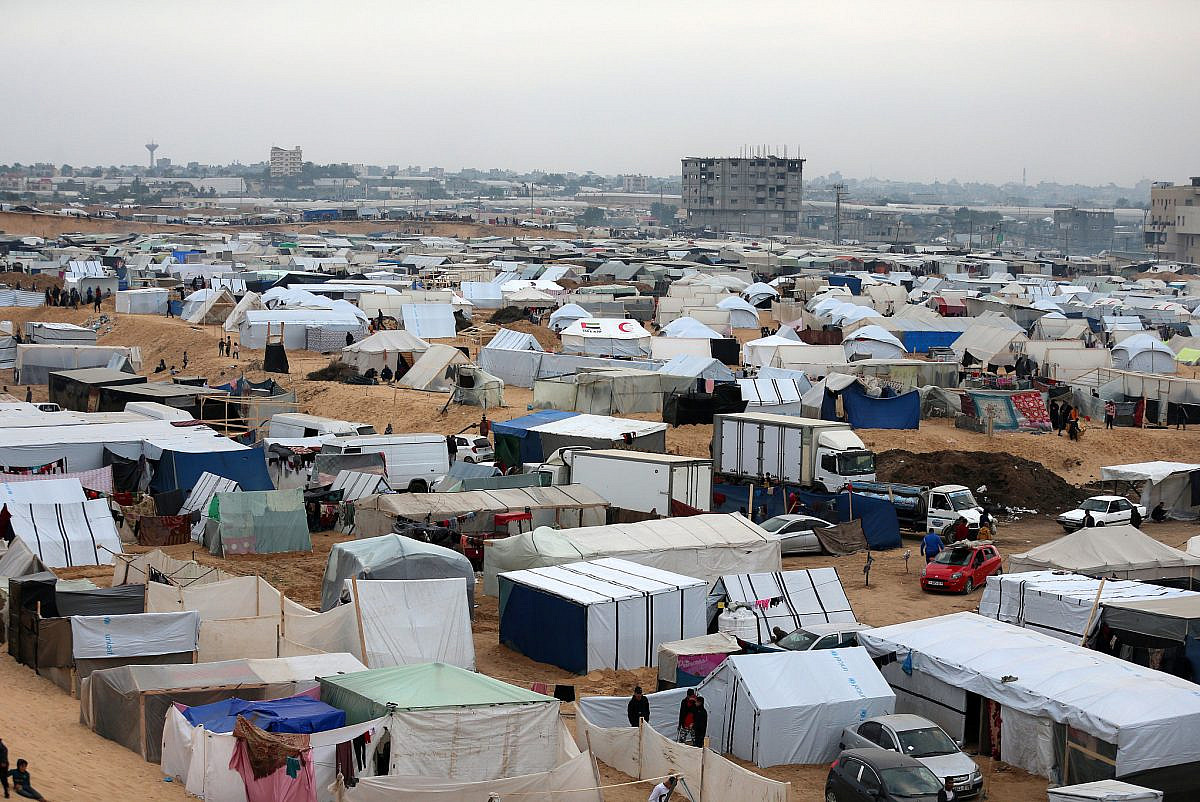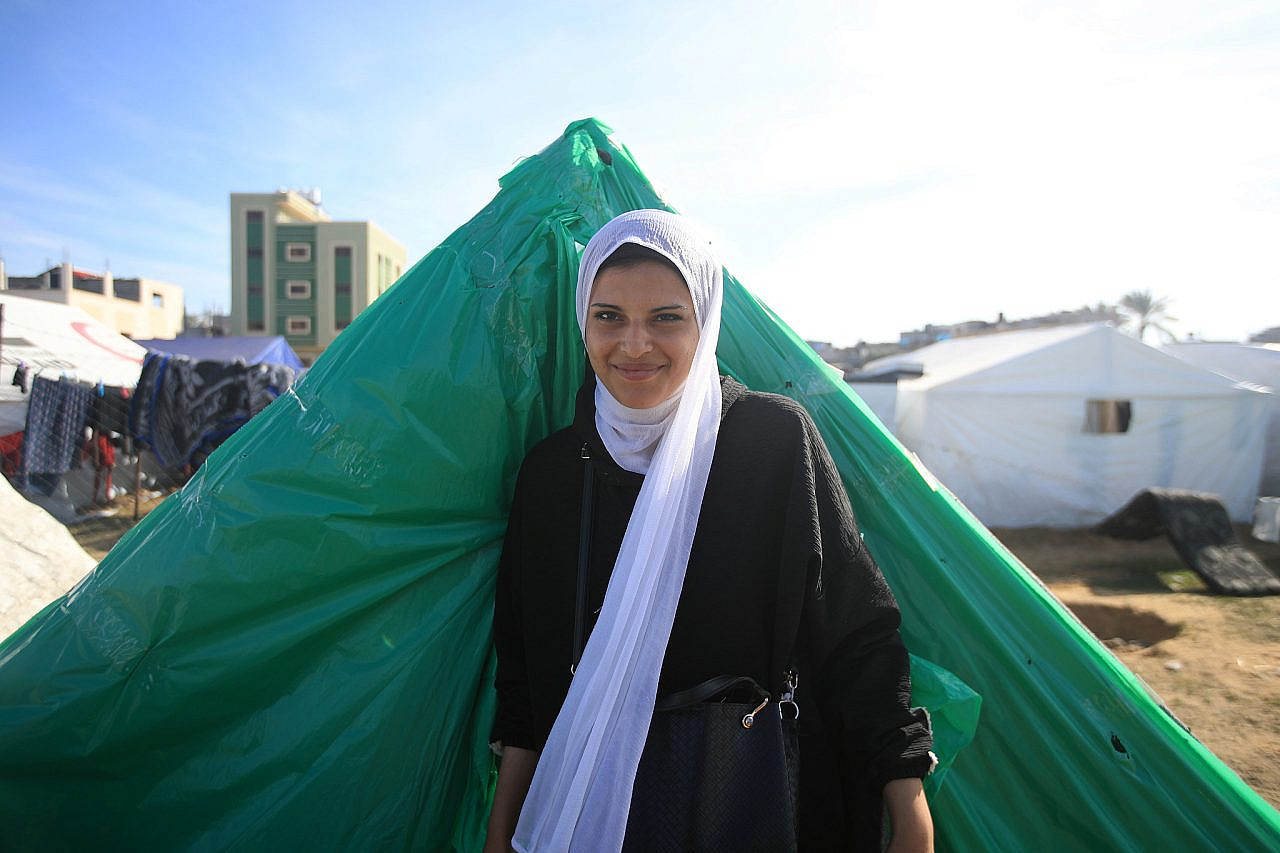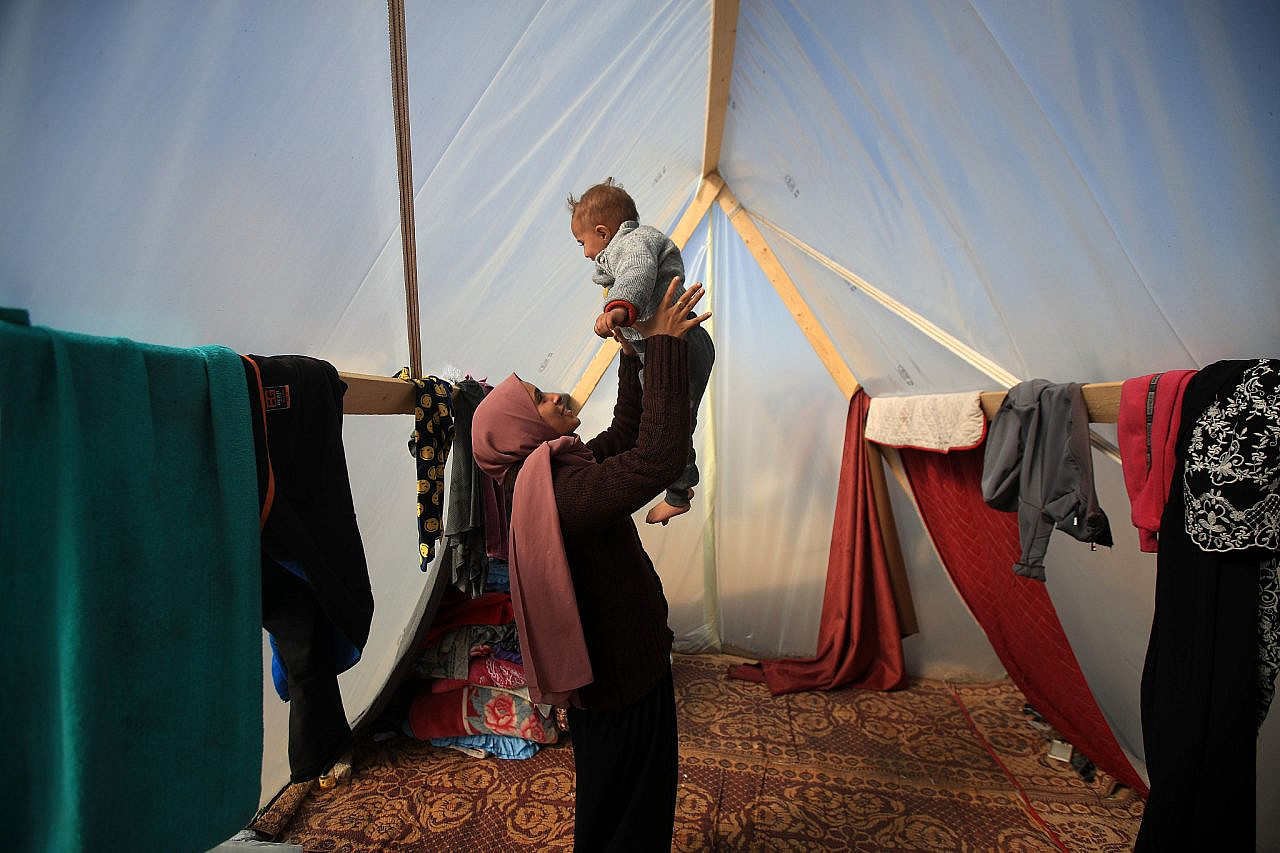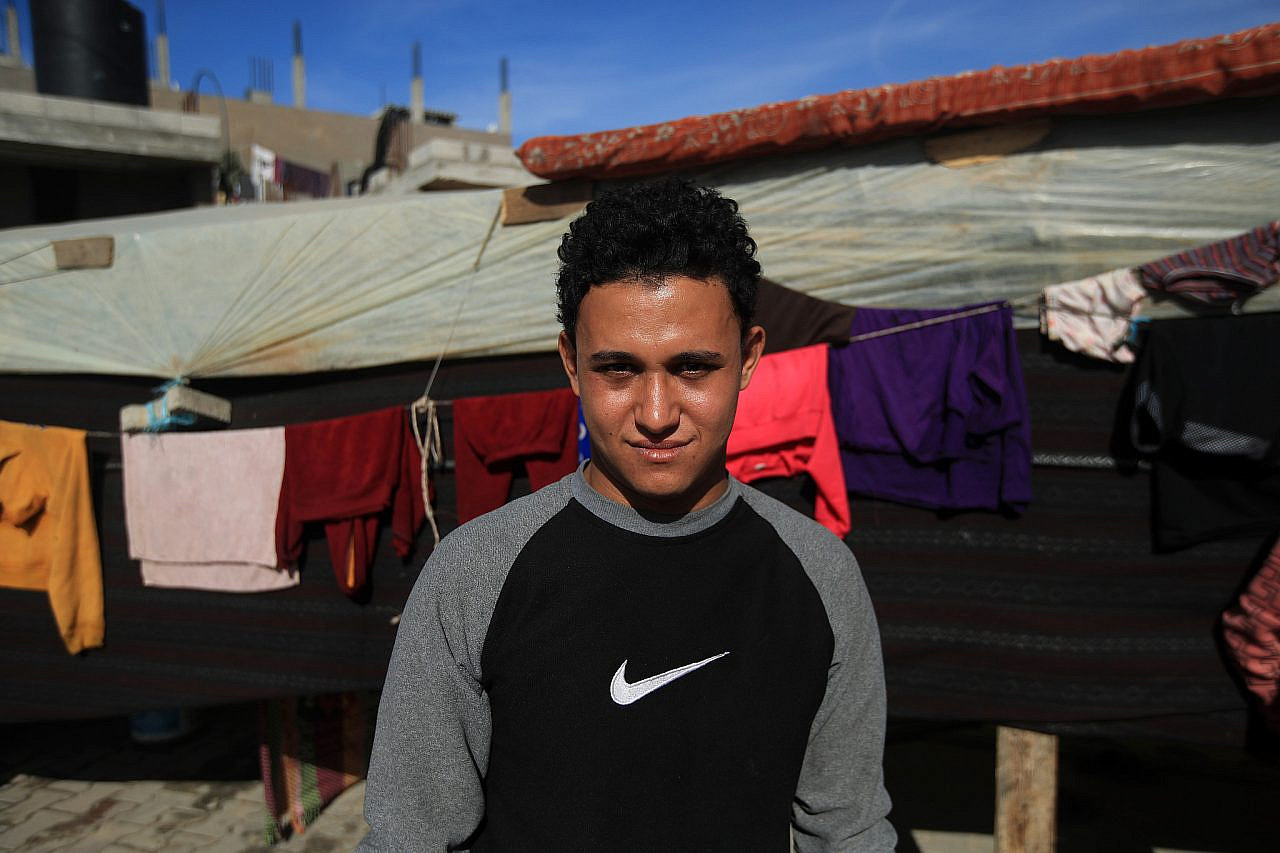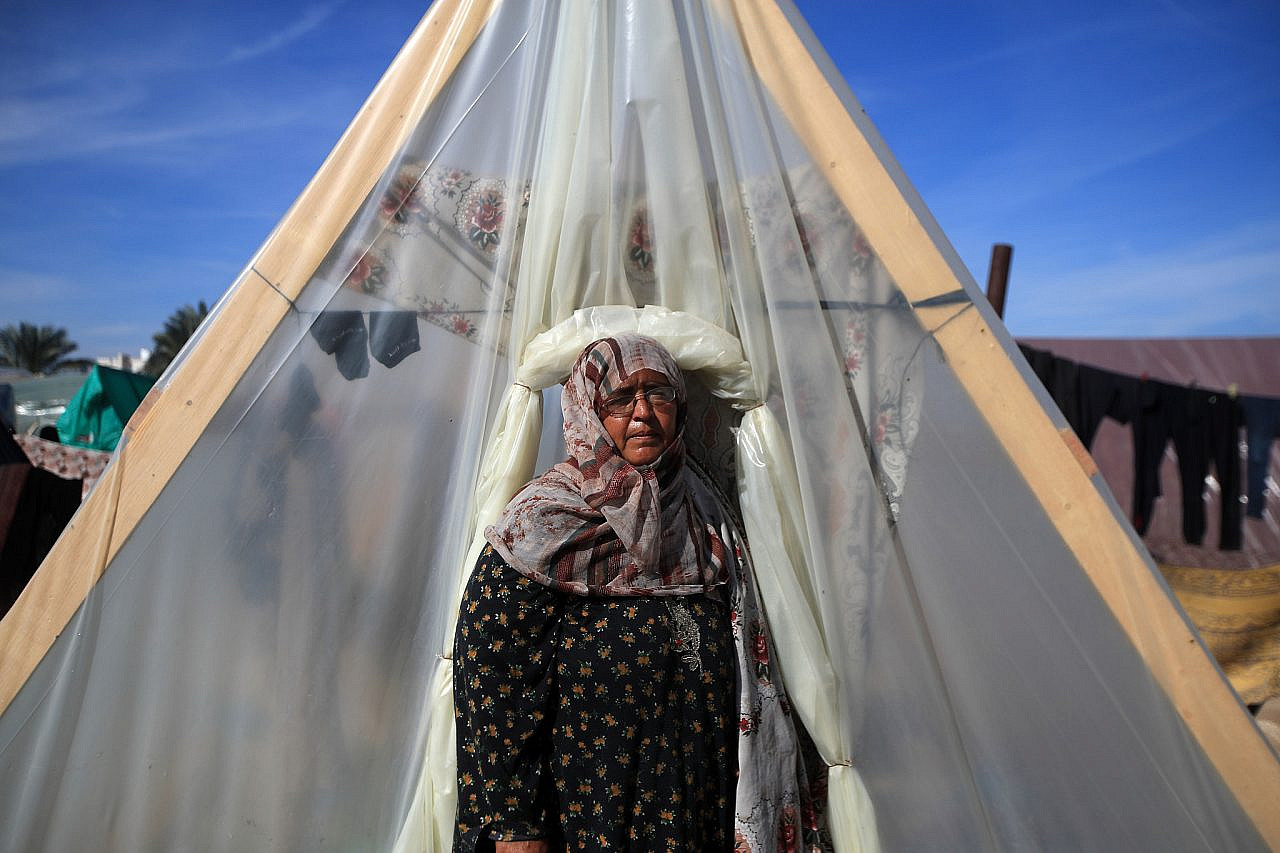Around half of the Gaza Strip’s population — an estimated 1 million people — is now crammed into the small southern city of Rafah, near the border with Egypt. Before the war, the city and its surroundings housed less than 300,000 people, but hundreds of thousands more have arrived over the past three months from all over Gaza as a result of Israel’s expulsion orders and unceasing bombardment by ground and air.
Like the rest of Gaza, Rafah does not have enough food, water, medicine, or shelter to accommodate its permanent residents, let alone the vast number of people now seeking refuge in the city. Many families are sleeping in tents, if they can find one; if they can’t, they sleep on the streets. Very few are permitted to cross the border into Egypt. Nearly everyone is extremely hungry and cold.
I am currently staying in Rafah with my wife and four children for the second time since the war began. We left our home in the northwest of Gaza City on October 7; since then, we have repeatedly been forced to relocate as a result of Israeli airstrikes and expulsion orders, and I have twice pulled my children out from under the rubble.
The house of my in-laws in central Gaza City, where we first sought shelter after fleeing our home, was destroyed; the flat we subsequently rented in Rafah for around a month was severely damaged; and I later found out that our own home was also badly damaged and Israeli soldiers at one point used it as a base.
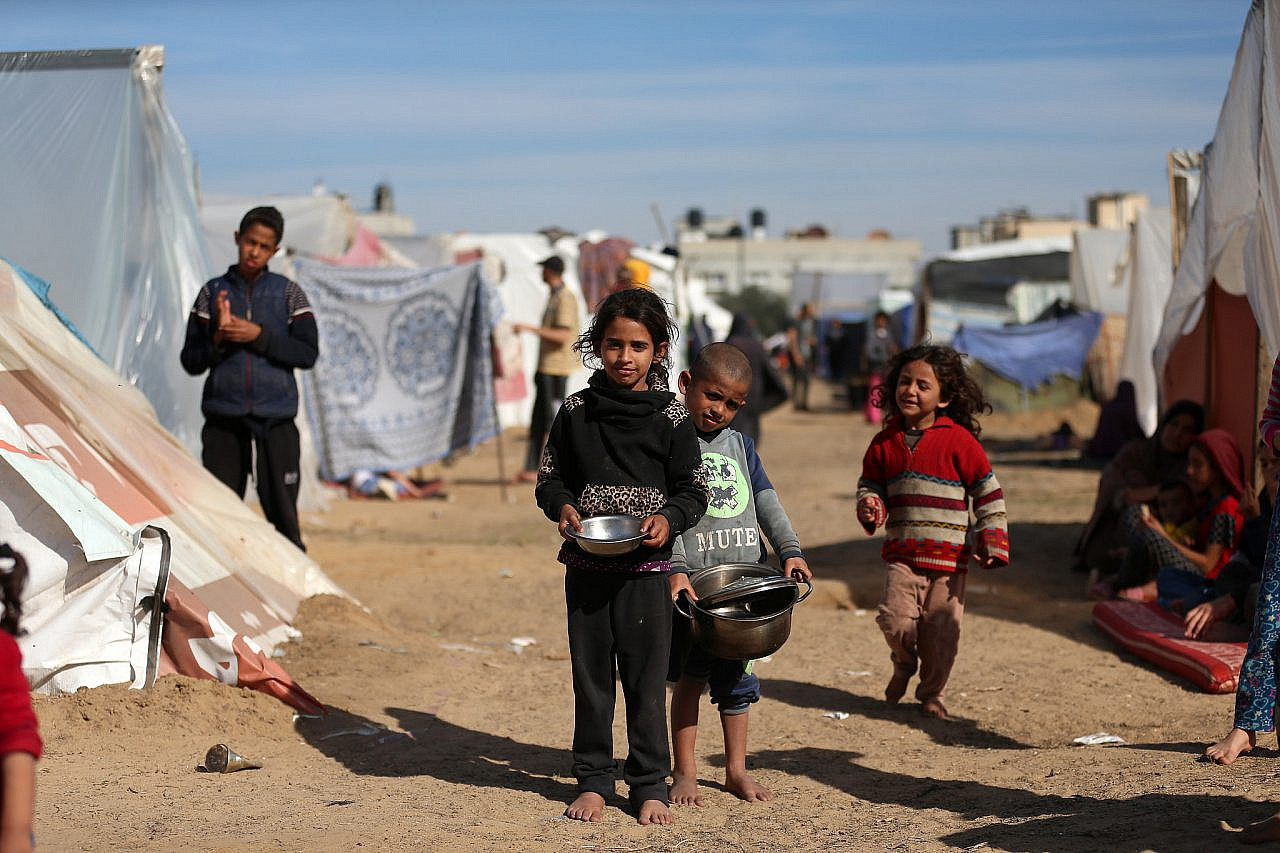
After spending another month with relatives in the city of Khan Younis, we were forced to return to Rafah due to the advance of Israeli ground forces. This time, I could not afford to rent an apartment here due to the exorbitant prices — currently around $2,000 for a small flat — so we ended up staying with relatives of my mother in the Philadelphi Corridor that runs along the border with Egypt.
I am struggling to provide my children with food and water. My 2-year-old son Kenan keeps asking for milk, which I cannot get for him. They are traumatized, and have a very severe reaction to the sound of bombs and explosions. It is often challenging to work, as the children do not allow me to go out. And with Israeli forces reportedly preparing to reoccupy the Philadelphi Corridor, we may soon be forced to leave again. I do not know where else to go.
A few days ago, I left my children and made the journey to the center of Rafah to buy food and water. Along the way, I saw only tents, and I stopped and spoke to a few of the displaced people. These are their stories.
Salam Al-Sinwar, 24
I am living in this tent with my husband and four children, aged 3, 7, 10, and 12. We had to leave our home in Gaza City because there was bombing all around us. When we left, our house was half-destroyed. Now I hear it’s completely destroyed.
From Gaza City, we first moved to Al-Nuseirat camp [in central Gaza] and then to Rafah. I didn’t want to leave. My whole life, everything and everyone I know, is in the north. I don’t know anyone here in Rafah. We came without any of our belongings, as we couldn’t carry anything with us.
When we arrived in Rafah, we stayed on the streets for three days until somebody brought us this tent. There are insects here that come from under the sand, and it is freezing cold. Adults can’t cope with this weather, especially at night — so how can children?
My children are sick. They are always cold and hungry. We can’t afford to buy any food, so we wait for people to bring it to us [from aid trucks]. I do not want to eat or drink, all I want is food and clean water for my children.
One of my children is deaf-mute and also suffers from a heart disease. He is 7 years old, and he can’t tell me if he is hungry or thirsty or cold. But I know he is.
I want to go back home where I have my clothes, my children’s clothes, and blankets. I want a warm place for my children. I do not want to have to rely on other people’s favors in order to survive.
Nurhan Hasonah, 20
I have one daughter, who is 2 years old. She is my whole life.
I am from the neighborhood of Al-Rimal in Gaza City. When the bombing began, we moved from neighborhood to neighborhood a few times. When [the Israeli army] told us to leave the north, I moved with my daughter, parents, and siblings to Al-Nuseirat. We stayed there for two months.
Then we had to leave again, and we ended up in Deir al-Balah [a city in central Gaza] but we couldn’t find shelter there. There were tents everywhere, and the schools and shelters were full, so I stayed with my daughter on the street for a day before coming down to Rafah. Here, we spent another whole day on the street until someone brought us a tent. Rafah is a tent city — everywhere you go you see tents.
I spend most of the day outside the tent. It’s so small and cramped. Nothing in the tent is ours — we received it all from other people. The blankets are not enough. My daughter hasn’t had a change of clothes for weeks, and I struggle to find diapers here. We don’t cook because we can’t afford to buy firewood. We eat whatever people or aid organizations bring us. Once every few days we get bread and a few vegetables.
What’s happening in Gaza is not destruction, it’s annihilation. They destroyed the whole Strip. It’s really hard to describe what we’ve been through and are still experiencing. My neighborhood, Al-Rimal, was the beating heart of Gaza, full of life, business, entertainment, and culture. When we left, it was like doomsday.
My only dream is for this war to end so I can go back home. I pray to God that I can go back to Gaza City.
Amjad Wahdan, 20
I am from Beit Hanoun [a city in Gaza’s northern tip]. I left during the early days of the war to different neighborhoods around Gaza City: first Tal al-Zaatar and then Sheikh Radwan. Then the [Israeli] army forced us to move to Al-Nuseirat. We stayed there for 70 days but again had to leave because of the bombing and the army’s threats.
Here we are now, in Rafah, sitting in the street. Our tent is on a sidewalk. We bought wood, nylon, and covers to provide shade. Each tent costs around NIS 600 shekels [around $160]. We are all here, the whole family: my parents, grandparents, uncles, and their families — around 80 people in total.
This is my first time in Rafah. Until now I spent my whole life in Beit Hanoun. I had never made it to the south. I don’t know where I am.
Hanan Barakeh, 60
On the first day of the war, we left our home in the town of Abasan al-Jadida to the east of Khan Younis and moved into the city. We stayed in my daughter’s home, where she was living with her husband and children. There were eight of us in the house, and we stayed there for two months until the army started dropping leaflets telling us to leave for further south. We fled under the bombing and came to the neighborhood of Al-Shabora in Rafah, to this tent on the road.
I had a beautiful house, with showers and three toilets. Now look how we are living. We can’t shower here. It’s impossible for young women to manage.
There is no food here, but sometimes aid groups come and distribute very little food to too many people. I wish I could work. All the women here want to work and get paid. NIS 20 [around $5] per day would be enough for me to get food for my children. I can’t cook because I can’t afford to buy firewood. And even if we could, it’s dangerous because of all the nylon [out of which most of the tents are made].
If I could, I would fly to my house. Even if the house is destroyed, I’d prefer to put up a tent there and to one day rebuild our home.

